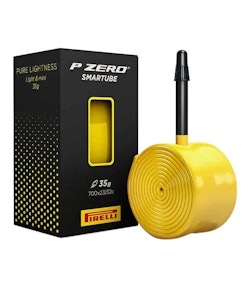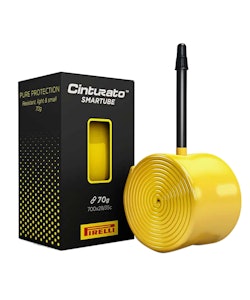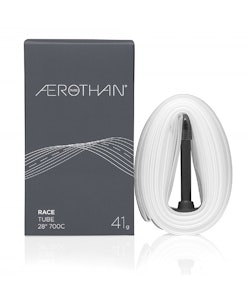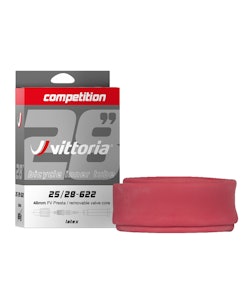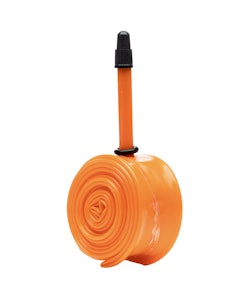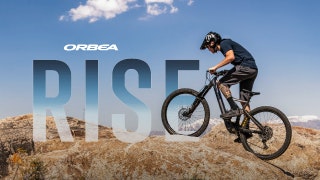Bike Inner Tubes
Arguably no single component can have a greater impact on your cycling experience than the humble bike inner tube. Made of synthetic rubber, bicycle tubes sit inside your tire, creating the airtight chamber that keeps your tires inflated. And while more and more higher end bikes (especially mountain bikes) have moved to tubeless set-ups, bicycle tubes remain an essential piece of cycling equipment. Indeed, carrying a spare bicycle tube is a must whenever you roll out on your bike, lest you get a flat tire and have to walk home.
When buying bike tubes there are two primary compatibility considerations: wheel size and valve type and length. Road, gravel, and cyclocross bike tubes are primarily 700c in diameter, though there are also an increasing number of bikes spec’d with smaller 650b wheels, which in turn require a corresponding smaller size bike tube. You also need to consider bike tube width, which corresponds with tire width. The most commonly used bike tubes for drop bar bikes fall in the 23mm-32mm range. Thus bike tubes for road/gravel/cyclocross bikes are labeled 700c x 23-25mm, which indicates what size wheel and what range of tire widths the particular road bike tube will work best with. Other common ranges are 25mm-28mm and 28mm-32mm.
It’s a similar story with mountain bike tubes, but there are three wheel sizes to consider. The two most common are 27.5” and 29”, though there are still some 26” wheeled bikes out there, too. You’ll also need to determine proper tube width, which is typically represented in inches and ranges from 2.0”-2.6” for traditional mountain bikes, 2.8”-3.0” for plus bikes, and 4.0”-5.0” for fat bikes. Thus mountain bike tubes are typically labeled 29 x 2.0”-2.3”, which indicates what size wheel and what range of tire widths the particular bike tube will work best with. When in doubt, check the label on the sidewall of your tire, which will tell you both wheel diameter and tire width.
Bike tubes are inflated via a valve stem that fits through a hole in your wheel’s rim, so you need to make sure the valve is both the right type and length for your needs. Bike tubes have either Presta valves or Schrader valves. Skinnier Presta tubes are found on most modern road and mountain bikes, but you’ll also encounter wider Schrader tubes (think car tire style) on some less expensive bikes. When in doubt, check what’s currently on your bike and then find the match.
Bike tubes valve length is an especially important consideration if your bike is outfitted with deep section wheels, which will often require 60mm valves to 80mm valves. Lastly, while most bikes tubes are fairly standard, there are also heavy duty (or thorn resistant) options for downhill mountain bike racing, lightweight offerings for weight-conscious racers, and even tubes that come with liquid sealant inside, which can help seal small punctures before your tire goes completely flat, meaning you don’t have to put a new tube in right away.
Whether you’re looking for road tubes or tubes for a kid’s bike, JensonUSA has some of the best bike tubes. If you have any questions, get in touch with a JensonUSA Gear Advisor, who can make sure you get the right one for your needs. You can email, chat, or call them at 888-880-3811.



































































































































































































































